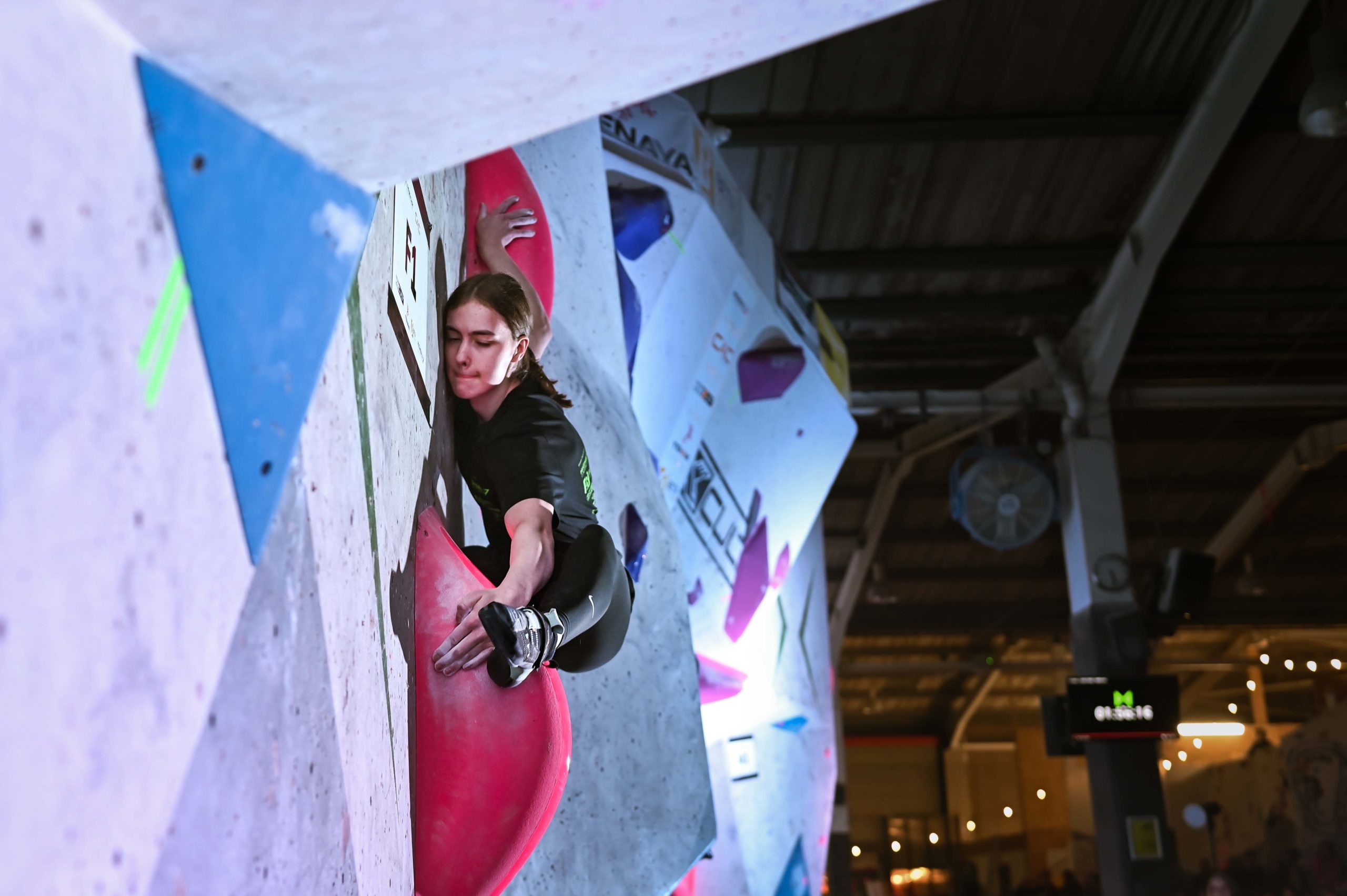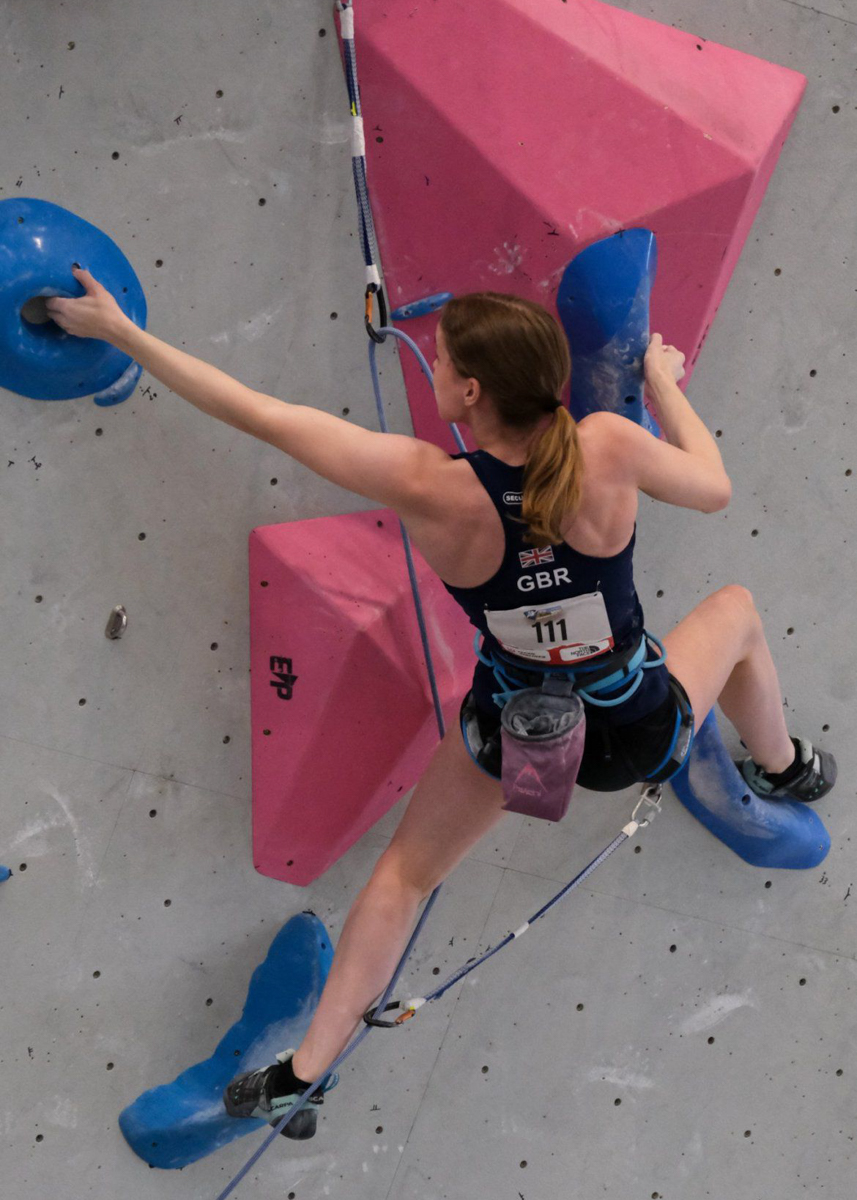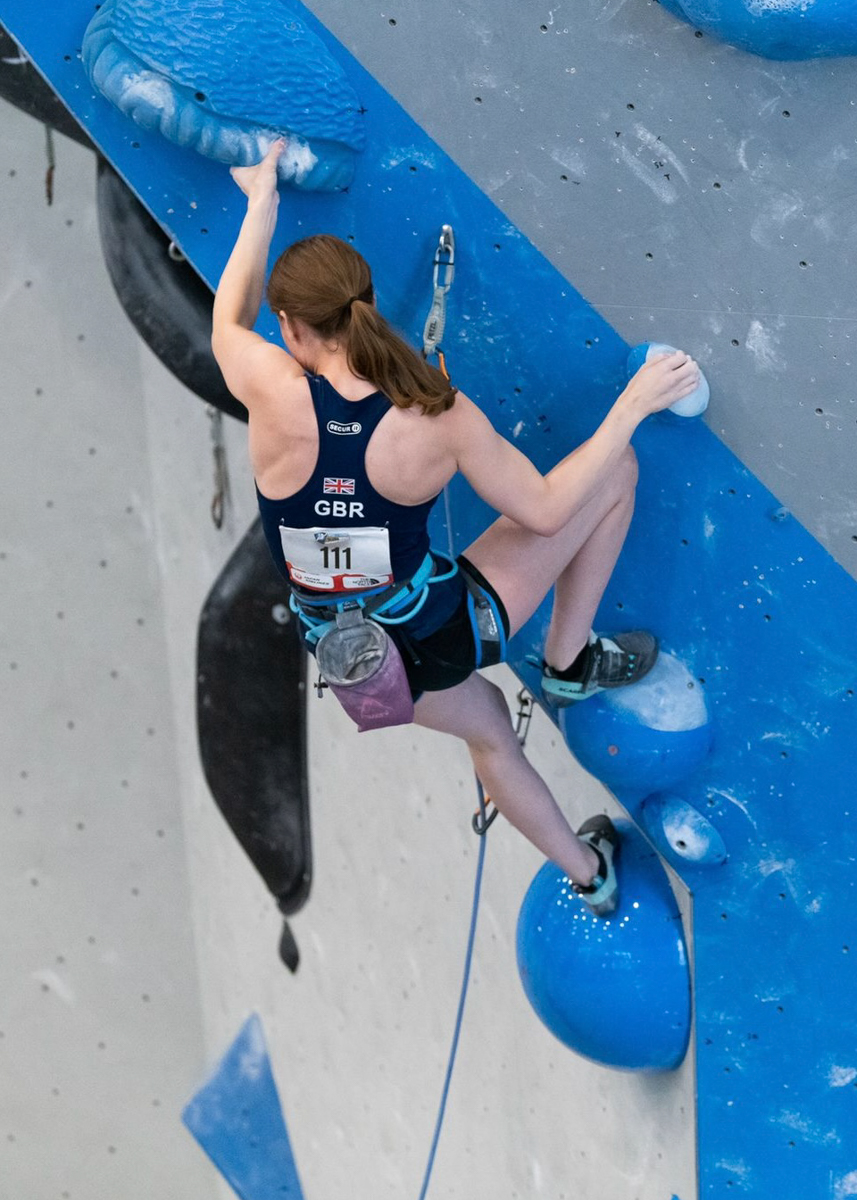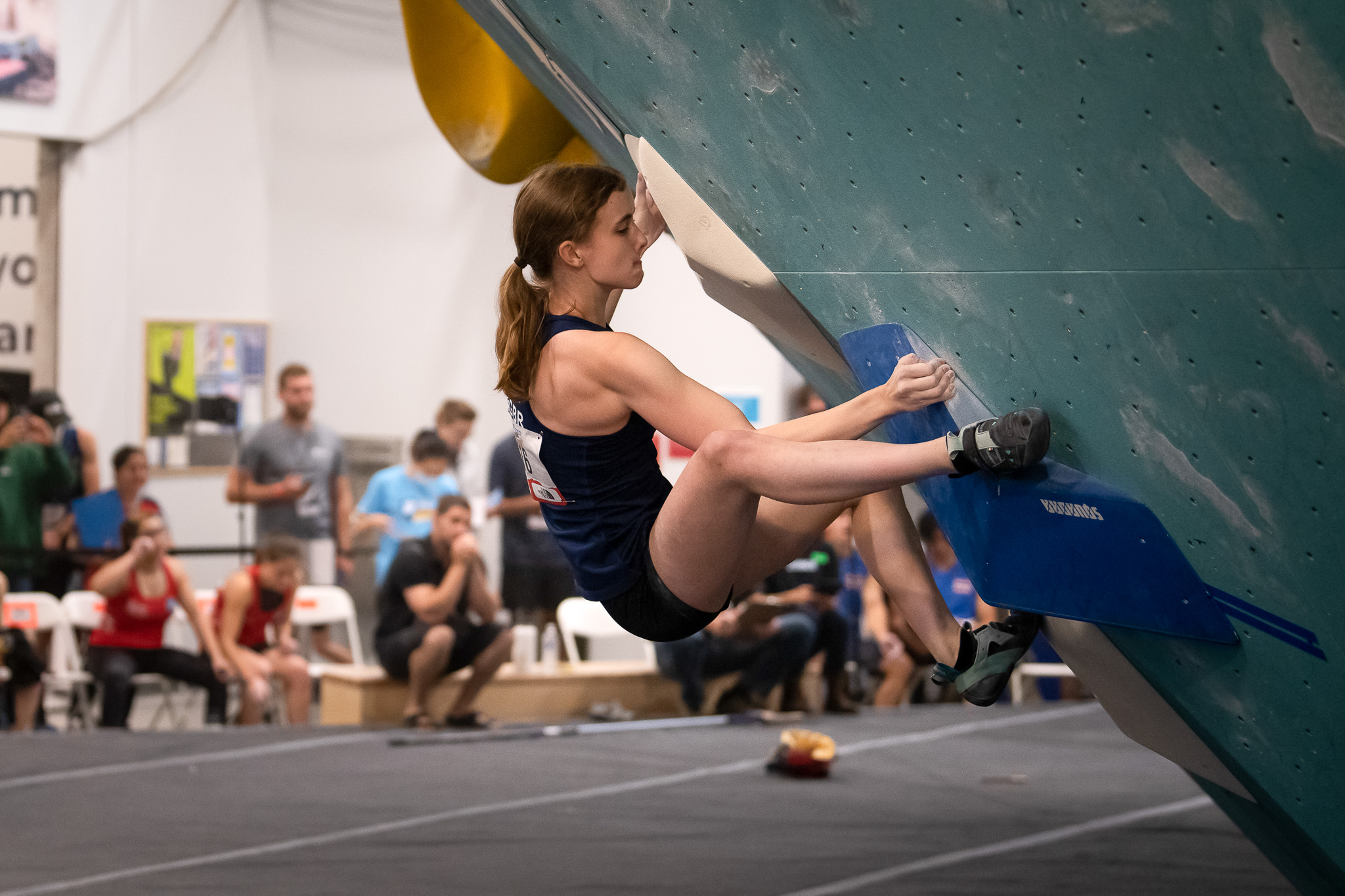I first started competing about 8 years ago at a freezing climbing centre in Sheffield. There were 8 climbs in the qualifiers, and I didn’t manage to get off the floor on any of them and finished last!
I’m not quite sure why I carried on after that, but I soon became a regular at what many will fondly remember as the Nukids competitions at Highball. Slowly my scores began to improve and all I wanted to do back then was ‘Top Gun’!
It was still some time before I felt brave enough to enter the Highball ‘Boulder League’ but as my confidence grew, I started to enjoy this event too eventually making a few finals along the way.

With the help of my parents, I started to compete further afield in 2018 and for a while I was almost getting there but not quite with my results until a major breakthrough winning the Scottish Youth Lead Climbing Championships in 2019. This is just what I needed to start believing and I went on to a number of other more promising results before the COVID pandemic struck bringing all indoor climbing to an abrupt halt in 2020. I remember being devastated at the time as things had started to go so well, but we ended up building two separate home climbing ‘walls’ in the garden and I started training harder than ever.
Things didn’t really kick off again with climbing competitions until late 2021 and to my relief it was clear that all my hard work had paid off with some great results in National competitions which eventually led me to finishing 2nd in the Junior British Bouldering Championships in 2022 and being selected to compete 6 times for Great Britain in my final year as a Junior with the highlight having the opportunity to compete in the Youth World Championships in Dallas, Texas in August 2022 reaching the semi-finals which I will always remember.


I started working full time about a year ago but have continued to train or climb 6 days a week and compete regularly across the UK with 6 appearances in finals over the last 3 months alone, including 4 podiums.
So, what is different about climbing in competitions, what have I learnt on my journey and how do I approach things now?
Bouldering competitions are generally about topping problems in as few attempts as possible with 10 points being awarded for a ‘flash’ down to just 1 point for completing a problem on the 4th attempt. Most competitions run by climbing centres have between 20 and 30 qualifying problems to be completed in up to 3 hours ranging from easy to hard with BMC national competitions having just 8 normally very hard qualifying problems. It is usually the top 6 athletes in each category from the qualifiers that make the finals which normally consist of 3 or 4 very hard and often more dynamic problems with just a few minutes to complete each one.
Here are 10 things that I now do every time I compete and hopefully, they will help you too:

I love competing and doing well, but most important of all I try more and more to just enjoy it.